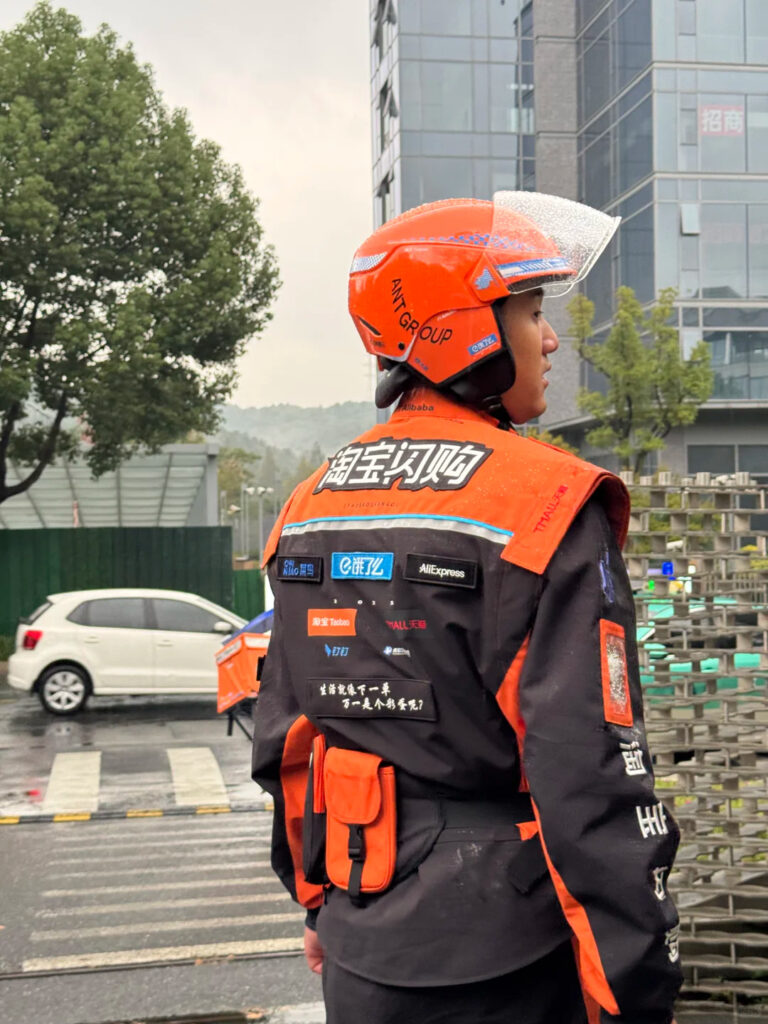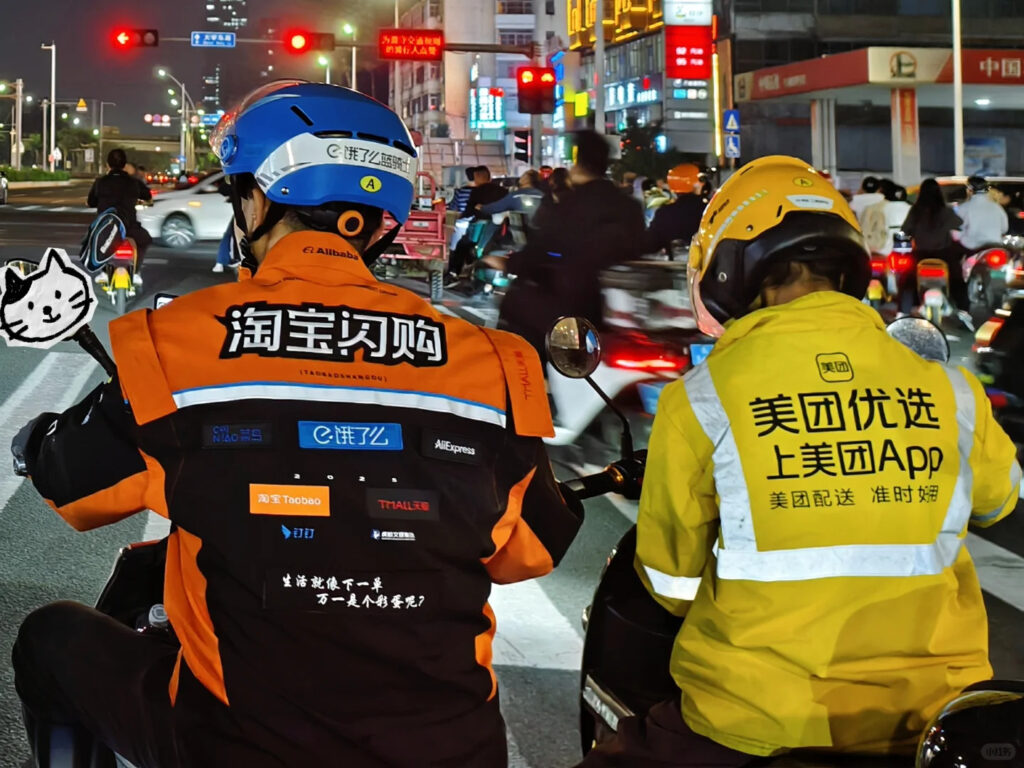Alibaba’s (阿里巴巴) 17-year pursuit of ‘local life’ prowess has reached its defining moment. In early November, users opening the Ele.me (饿了么) app found something new: the familiar blue had turned Taobao orange, and the brand name had changed to Taobao Flash Sale (淘宝闪购). What looks like a simple rebrand is, in truth, a structural reset – one that folds food delivery, instant retail, and in-store services into a single, unified Taobao experience.
From blue knights to city knights

For years, Ele.me’s ‘blue knights’ symbolised a standalone delivery brand. Under Taobao Flash Sale, the riders’ colours are changed and their role recast. Now to be known as ‘city knights’ (城市骑士), they’ll be part of a broader fulfilment network serving meals, groceries, daily essentials, and flash-sale SKUs sourced from Taobao and partner merchants. The colour shift from blue to orange is still under rollout, but the intent is clear: delivery is no longer a parallel universe – it’s now part of Taobao’s whole game.
Anyone who looks fondly at the memory of Ele.me’s blue era will have much to mourn, but this is less about uniforms than about positioning. Ele.me’s logistics grid will become shared infrastructure for Alibaba’s instant retail: a pool of riders, mini-warehouses, and stores that can be steered by Taobao demand rather than just restaurant orders.
Taobao Flash Sale: Seventeen years in the making


The rebrand lands on top of a long, expensive build. Alibaba’s local-life push traces back to Koubei (口碑)(acquired in 2008), and early attempts to digitise restaurants and services. The US$9.5 billion Ele.me acquisition in 2018 secured Alibaba a seat at China’s on-demand delivery table.
In June 2025, Alibaba folded Ele.me and travel platform Fliggy into its core China e-commerce division, keeping operations separate, but aligning strategy, tech and data under a single e-commerce group. The move linked food delivery, travel and shopping.
Seen through that lens, Taobao Flash Sale is not some random rename. It’s the consumer-facing expression of a structure that Alibaba has been working on for nearly two decades.
Building the 30-minute Taobao: what this means for consumers
Alibaba is turning Taobao into something much faster and more physical – a shopping app that behaves like a local delivery network rather than a national marketplace.
Taobao will partner with convenience stores in more than 200 cities, each acting as a mini-warehouse for rapid fulfilment. New flash warehouses and merchant incentives will keep popular items stocked close to shoppers, while the app prioritises goods available nearby.
The company has also set a target of delivering many everyday orders – from meals to groceries – within 30 minutes of purchase, using Ele.me’s rider network. The goal isn’t yet universal, but it marks a clear shift: Taobao shopping is going to be less about scrolling and saving and closer to the experience of ordering a delivery coffee.
Why Alibaba is doing it

Three pressures sit behind the orange suit. First, competition. Meituan dominates local services. JD.com and emerging players are investing heavily in quick commerce. Alibaba has been under pressure in both takeaway and instant retail. Rebranding Ele.me into Taobao Flash Sale lets Alibaba lean on Taobao’s traffic and trust instead of running a weaker standalone brand, and channels on-demand back into its core ecosystem.
Second, market shape. China’s instant retail market — defined by 30–60 minute fulfilment from nearby stores and warehouses — is forecast to exceed RMB 2 trillion (approx. USD $275.9 billion) by 2030. Food delivery, convenience, groceries, pharmacy, and pretty much anything else you could want delivered are converging. If Ele.me remained just food delivery, Alibaba would be underweight in the very segment where big money is to be made.
But the third is slightly deeper. Alibaba is merging commerce, service and logistics: That stack is designed to embed Taobao into the rhythm of daily life – or should we say ‘local-life’ – rather than just being a portal for big-ticket shopping festivals.
What Taobao Flash Sale really signals
For brands and merchants, Taobao Flash Sale is a clearer proposition: plug into Taobao for traffic, access a same-city fulfilment network and forego the legwork of building one yourself. For Alibaba, it simplifies a messy brand map and turns local-life from side quest to core storyline.
Whether it closes the gap with Meituan is up for grabs. But for the first time in a long time, Alibaba’s local-life ambitions, logistics muscle, and flagship brand are all pulling in the same direction, and they’re all wearing orange.









